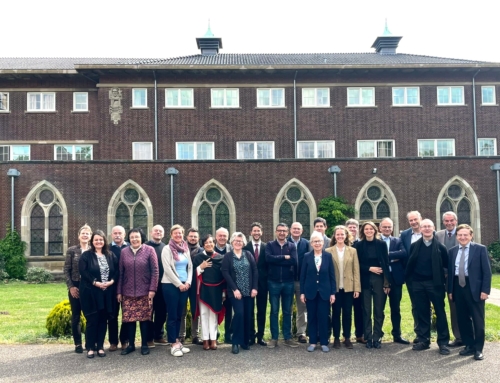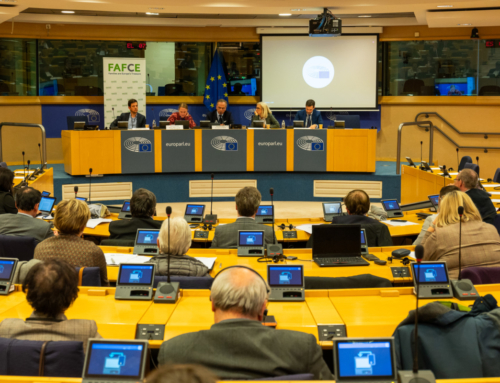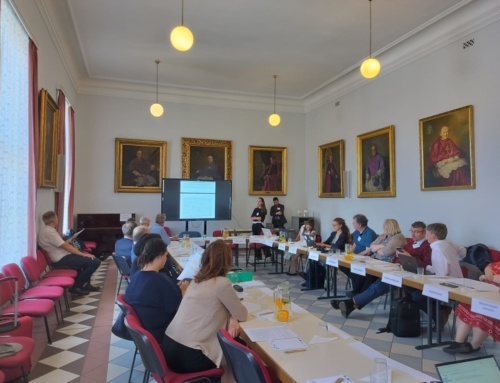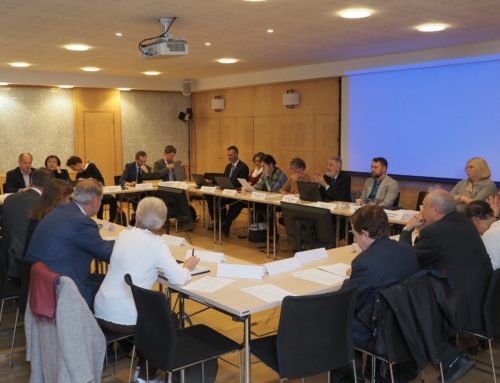Families’ are Europe’s Treasure and building block for the future
Rome, 30 May 2017
60 years after the Treaty of Rome, followed by the longest period of peace in Europe, the challenges for peace and civilization in the world are still critical concerns.
Considering that family is an indispensable peace factor, and plays a unique role in the protection of fundamental freedoms;
Considering the role of the family for the culture of dialogue, mutual respect and forgiveness;
Considering the crucial and primary role of parents, mother and father, for the education of their children, and the specific character respectively of motherhood and fatherhood;
Considering the role of grandparents for transmission of values and culture;
Considering that family is the best place where solidarity and financial transfer between generations can be spontaneously operative;
Considering the current demographic situation in Europe with an ageing population, falling birth rates in a majority of countries, and declining fertility, that illustrates the lack of confidence in the future and generates frustration and disappointment;
Considering the crucial role carried out by the family and its saving capacity in terms of economic growth, development as well as of production of human capital.
Recalling that the family is the natural and fundamental group unit of society and is entitled to protection by society and the State (article 16.3 of the Universal Declaration of Human Rights);
Recalling that the family as a fundamental unit of society has the right to appropriate social, legal and economic protection to ensure its full development. (recital 16 of the European Social Rights Charter);
Recalling that all persons with family responsibilities and who are engaged or wish to engage in employment have a right to do so without being subject to discrimination and as far as possible without conflict between their employment and family responsibilities. (recital 27 ESRC). This requires in particular to develop sustainable trade agreements at the global level which are beneficial for families, including in emerging countries;
Recalling that employed women, in case of maternity, have the right to a special protection. (Recital 8 ESRC)
The European Federation of Catholic Family Associations, FAFCE, calls on the Governments of the European States to:
– Consider the family as a subject of rights, with the right to exist and progress as a family;
– Recognise and protect the unique character of marriage, lasting union of one man and one woman, for the good of the spouses and their children;
– Promote and create family policies at the national level and promote family friendly EU policies, whilst respecting the principle of subsidiarity and the national competence on family law as outlined in article 81.3 of the TFEU and article 9 of the Charter of Fundamental Rights of the EU;
– Favour exchanges of constructive family policy measures that have proved their efficiency among States;
– Respect the need for every family to choose the organisation of its balance between family life and work, taking into account that families’ needs vary over time;
– Implement public policies that enable young citizens to develop their capacities to take their own initiative in order to improve employment, and make sure they can benefit from decent working conditions with a view to the desire to found a family;
– Support and recognise as valuable the efforts of spouses to build stable relationships;
– Recognise and support the efforts of parents to fulfill the role as the first and primary educators of their children, rather than replacing parents in the context of education;
– Consider family relationships as a guideline to further develop cooperation between the nations in Europe and in the world;
After the setup of the conditions of peace, Europe had the ambition to further develop true solidarity through concrete projects. Europe needs a reset of this process to foster a culture of peace, and look for up-dates new projects taking into consideration the family as its’ treasure and building block of the future.









